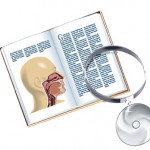High complication rates and a lack of proven best approaches suggest tailoring the approach to address the potential risks based on location and severity

Hospital Type Affects Cost, Outcome of Tonsillectomies in Kids
Tonsillectomies performed in kids at children’s teaching hospitals have a significantly higher cost, are more likely to involve complications, and result in more comorbidities than when performed at other types of hospitals.
Impact of Shared Decision Making on Elective Surgery
Shared decision making reduces conflict and improves the quality of the decision for patients who are making choices about elective surgery.

How Should Propranolol Be Initiated for Infantile Hemangiomas: Inpatient Versus Outpatient?
Current evidence supports that propranolol is safe to use for otherwise healthy infants with IH
Sleep Endoscopy, Cine MRI Most Effective in Identifying Pediatric OSA Obstruction Sites
Drug-induced sleep endoscopy and cine MRI are the most commonly reported tools to identify obstruction sites for children with persistent OSA

Computer Program May Predict Outcomes of Cochlear Implants in Children
A new computer program may be able to predict which children with hearing loss treated with cochlear implants will develop effective language skills after implantation.
Transcervical Ultrasonography Useful in Diagnosing Pediatric Peritonsillar Abscess
Study shows ultrasonography useful for diagnosis and determining patients who do not need surgery
Impact of Pediatric Tonsillectomy Guidelines on Clinical Practice
Despite tonsillectomy being the most common operative procedure performed in the United States, considerable variation exists in management and resource utilization
Can Tonsil Size Help Predict Pediatric OSA Severity?
An evaluation of a child with sleep-disordered breathing requires a careful assessment of symptoms as well as tonsil size

WATCH THIS: CT vs. MRI in Otology
Radiologists Hugh Curtin, MD and Caroline Robson, MBChB discuss indications for both CT and MRI imaging studies in the evaluation and management of otologic disease.
- « Previous Page
- 1
- …
- 6
- 7
- 8
- 9
- 10
- …
- 20
- Next Page »